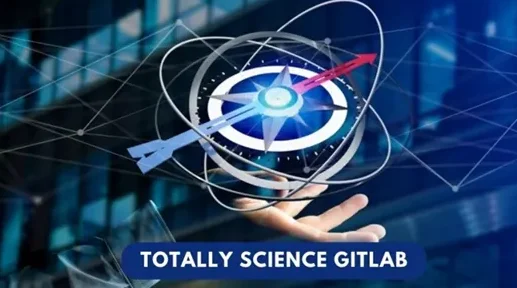Introduction
In the ever-evolving landscape of science and technology, collaboration is key to driving innovation and discovery. One platform that has gained significant traction in recent years is GitLab, a web-based DevOps lifecycle tool that provides a Git repository manager with features like issue tracking, continuous integration, and more. This article explores how “Totally Science” utilizes GitLab to enhance collaborative research and development, streamline workflows, and foster a community of innovation.
What is Totally Science?
Totally Science is an initiative aimed at promoting open scientific research and collaboration among scientists, researchers, and developers. It emphasizes transparency, reproducibility, and accessibility in scientific endeavors. By leveraging modern tools and platforms, Totally Science seeks to break down the barriers that often hinder collaboration in the scientific community.
The Role of GitLab in Scientific Collaboration
1. Version Control and Collaboration
One of the primary features of GitLab is its robust version control system, which allows multiple users to work on the same project simultaneously. This is particularly beneficial in scientific research, where teams often consist of individuals from diverse disciplines. Totally Science GitLab branching and merging capabilities enable researchers to experiment with new ideas without disrupting the main project, ensuring that all contributions are tracked and documented.
2. Continuous Integration and Deployment
GitLab’s continuous integration (CI) and continuous deployment (CD) features automate the process of testing and deploying code. This is crucial in scientific research, where reproducibility is a fundamental principle. By automating these processes, researchers can ensure that their findings are consistently validated and that their software tools are always up to date. This not only saves time but also enhances the reliability of scientific outputs.
3. Issue Tracking and Project Management
Effective project management is essential for successful scientific collaboration. GitLab’s issue tracking system allows teams to document tasks, bugs, and feature requests in a centralized location. This transparency helps teams prioritize their work and maintain clear communication. Additionally, GitLab’s project boards can be customized to fit the specific needs of a research project, making it easier to visualize progress and manage workflows.
Enhancing Open Science
1. Accessibility and Inclusivity
Totally Science advocates for open science, which promotes the sharing of research data, methodologies, and findings. GitLab plays a crucial role in this by providing a platform where researchers can publish their code and datasets. This openness not only increases the visibility of scientific work but also encourages collaboration across institutions and disciplines.
2. Community Building
By utilizing GitLab, Totally Science fosters a sense of community among researchers. The platform allows for discussions, feedback, and peer review, creating an environment where scientists can learn from each other and build upon existing knowledge. This collaborative spirit is essential for driving innovation and addressing complex scientific challenges.
ALSO READ:Strategies to Strengthen Your Acúmen and Achieve Your Goals
Case Studies: Success Stories
1. Collaborative Research Projects
Several research teams have successfully utilized GitLab to manage their projects. For instance, a multidisciplinary team studying climate change used GitLab to share their models and datasets. By collaborating on the platform, they were able to refine their models more quickly and share their findings with the broader community, leading to impactful publications and policy recommendations.
2. Open Source Software Development
In the realm of computational biology, researchers have developed open-source software tools using GitLab. These tools are not only beneficial for their own research but are also made available to the wider scientific community. By sharing their code on GitLab, these researchers have enabled others to build upon their work, fostering a culture of collaboration and innovation.
Conclusion
Totally Science, in conjunction with GitLab, represents a significant step forward in the realm of collaborative research and development. By harnessing the power of modern technology, researchers can work together more effectively, share their findings openly, and drive innovation in science. As the scientific community continues to embrace these tools, we can expect to see an increase in the quality and impact of research, ultimately benefiting society as a whole.In a world where collaboration is more important than ever, platforms like GitLab are not just tools; they are catalysts for change, enabling a new era of scientific discovery and innovation.
ALSO READ:Discover the Power of vc7774: A Comprehensive Overview
FAQs
What is Totally Science?
Totally Science is an initiative focused on promoting open scientific research and collaboration among scientists, researchers, and developers. It emphasizes transparency, reproducibility, and accessibility in scientific endeavors, aiming to break down barriers to collaboration within the scientific community.
How does GitLab support scientific collaboration?
GitLab provides a range of features that enhance scientific collaboration, including version control, continuous integration and deployment, issue tracking, and project management tools. These features allow researchers to work together efficiently, track changes, automate testing, and manage tasks effectively.
Why is version control important in scientific research?
Version control is crucial in scientific research because it allows multiple researchers to work on the same project simultaneously without overwriting each other’s contributions. It helps track changes, maintain a history of the project, and facilitate collaboration across different disciplines.
What are continuous integration and continuous deployment (CI/CD)?
Continuous integration (CI) is a practice where code changes are automatically tested and integrated into a shared repository. Continuous deployment (CD) extends this by automatically deploying code changes to production after passing tests. In scientific research, CI/CD ensures that software tools are consistently validated and up to date, enhancing reproducibility.
How does GitLab enhance project management for research teams?
GitLab offers an issue tracking system that allows teams to document tasks, bugs, and feature requests in a centralized location. It also provides customizable project boards to visualize progress and manage workflows, ensuring clear communication and prioritization of work among team members.

